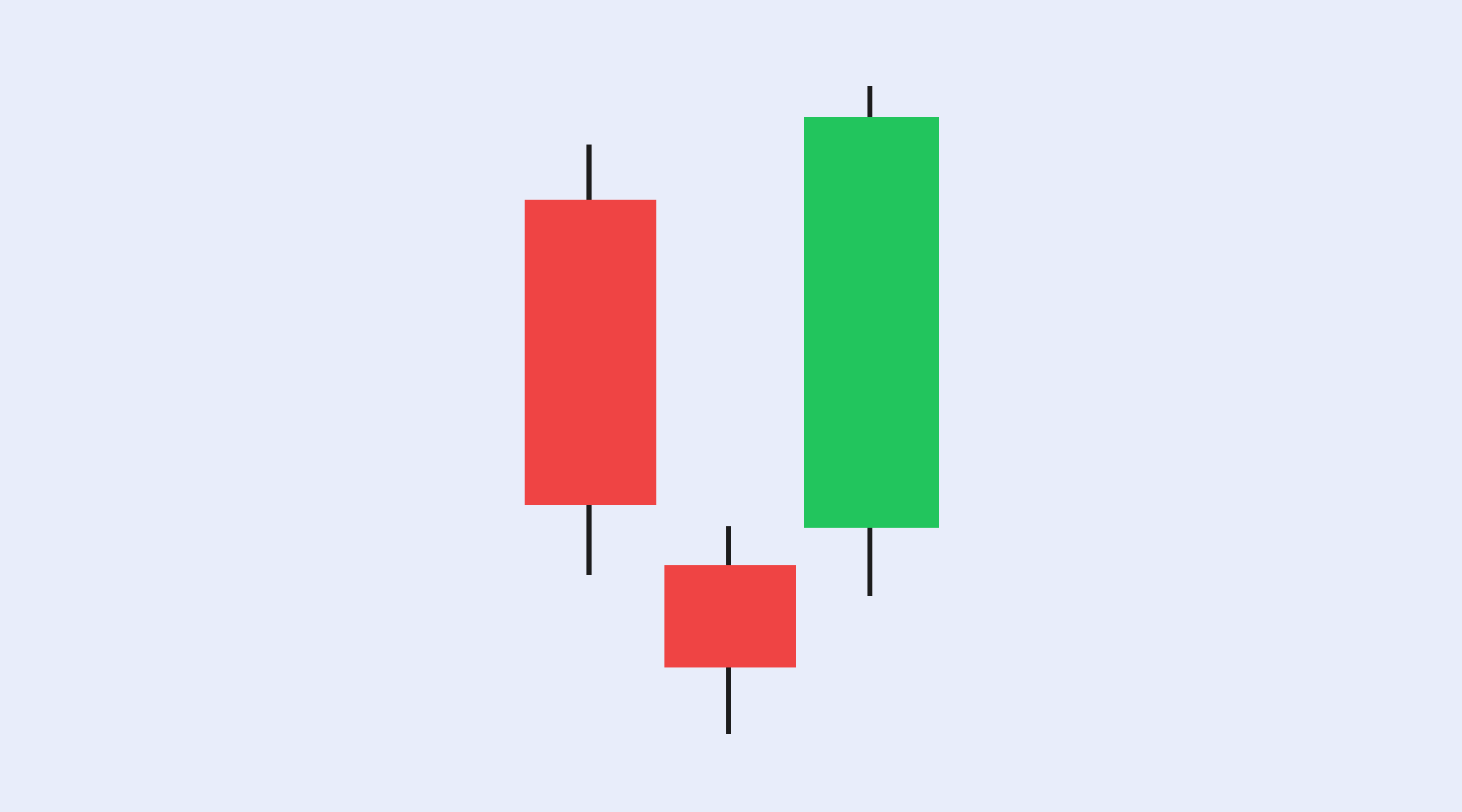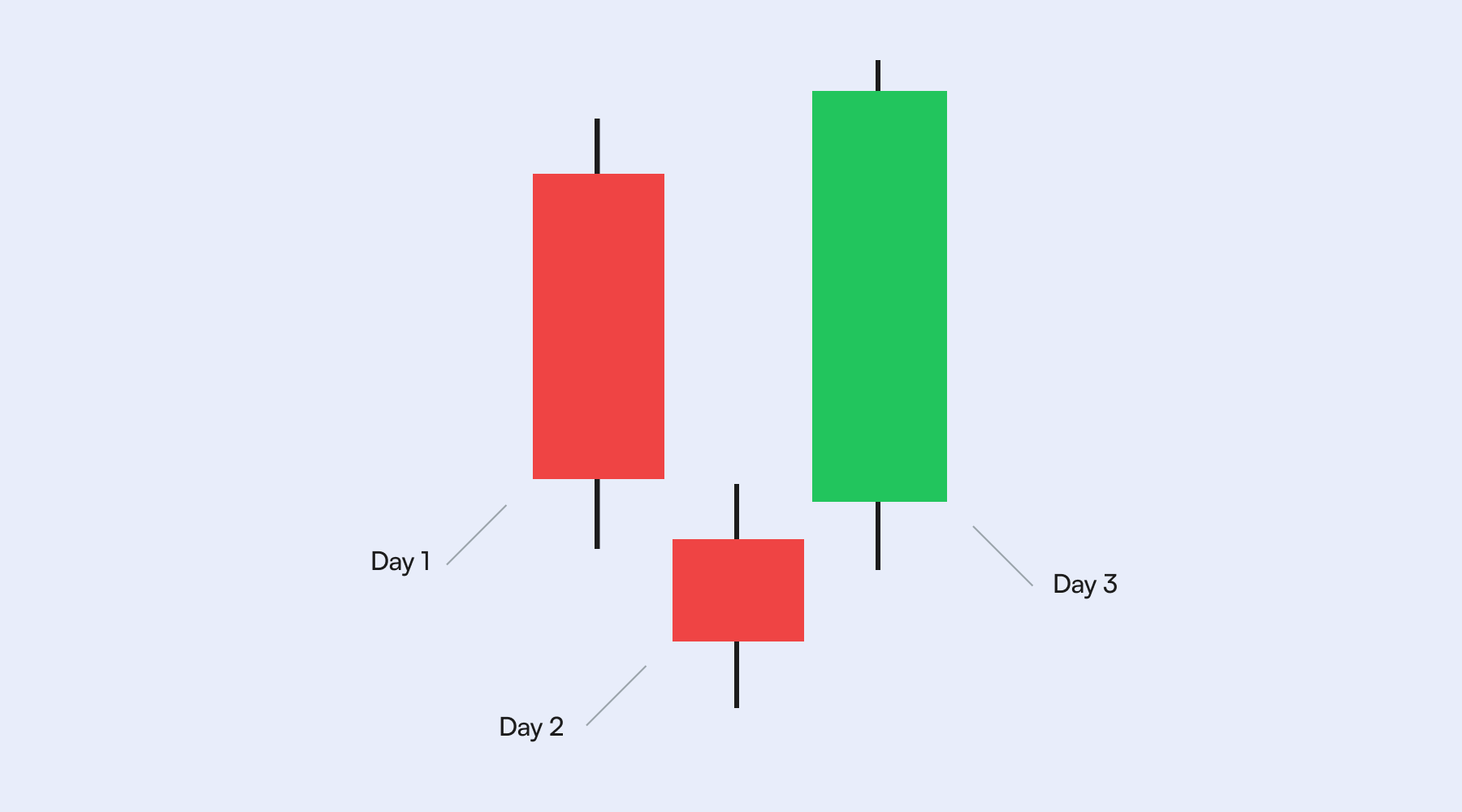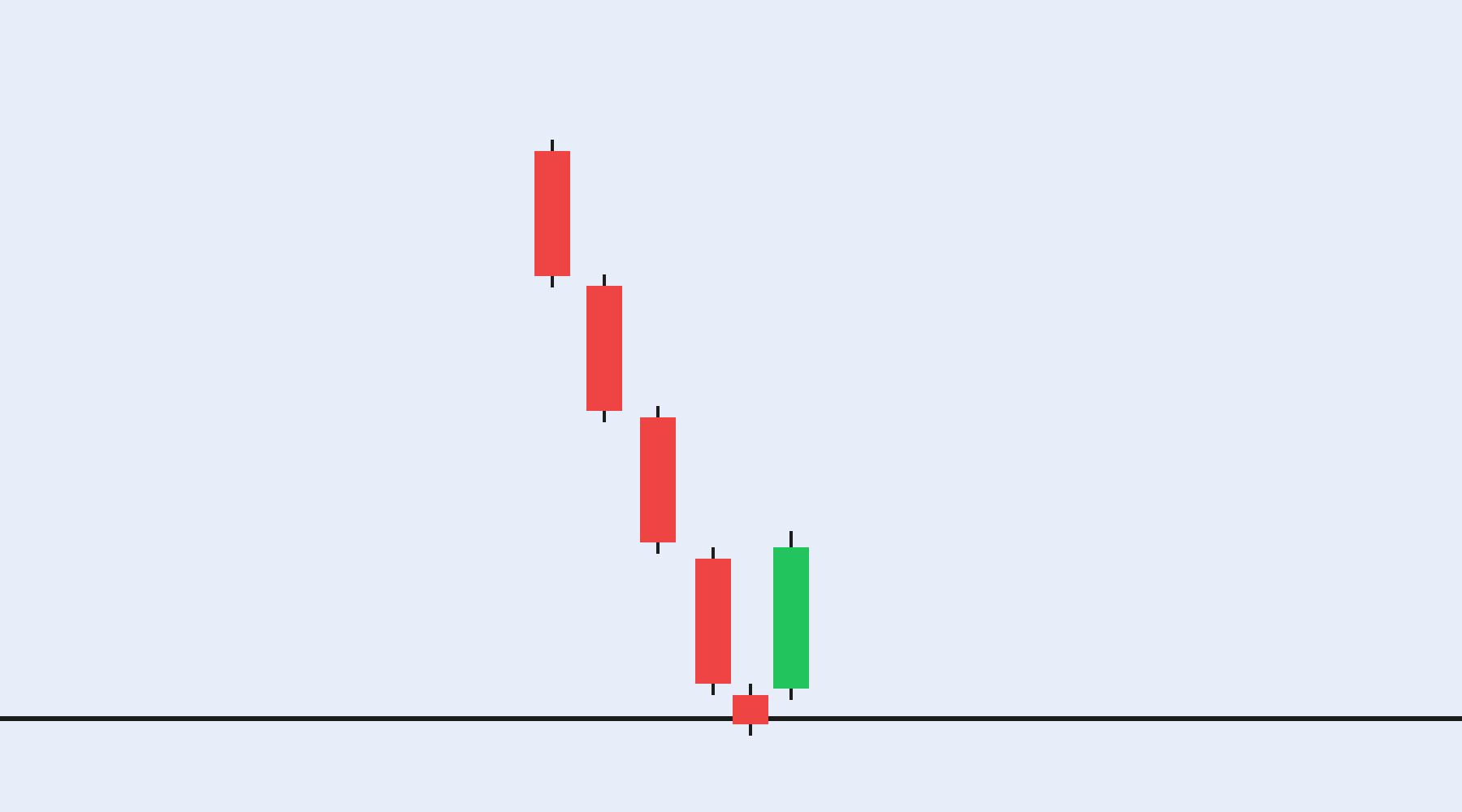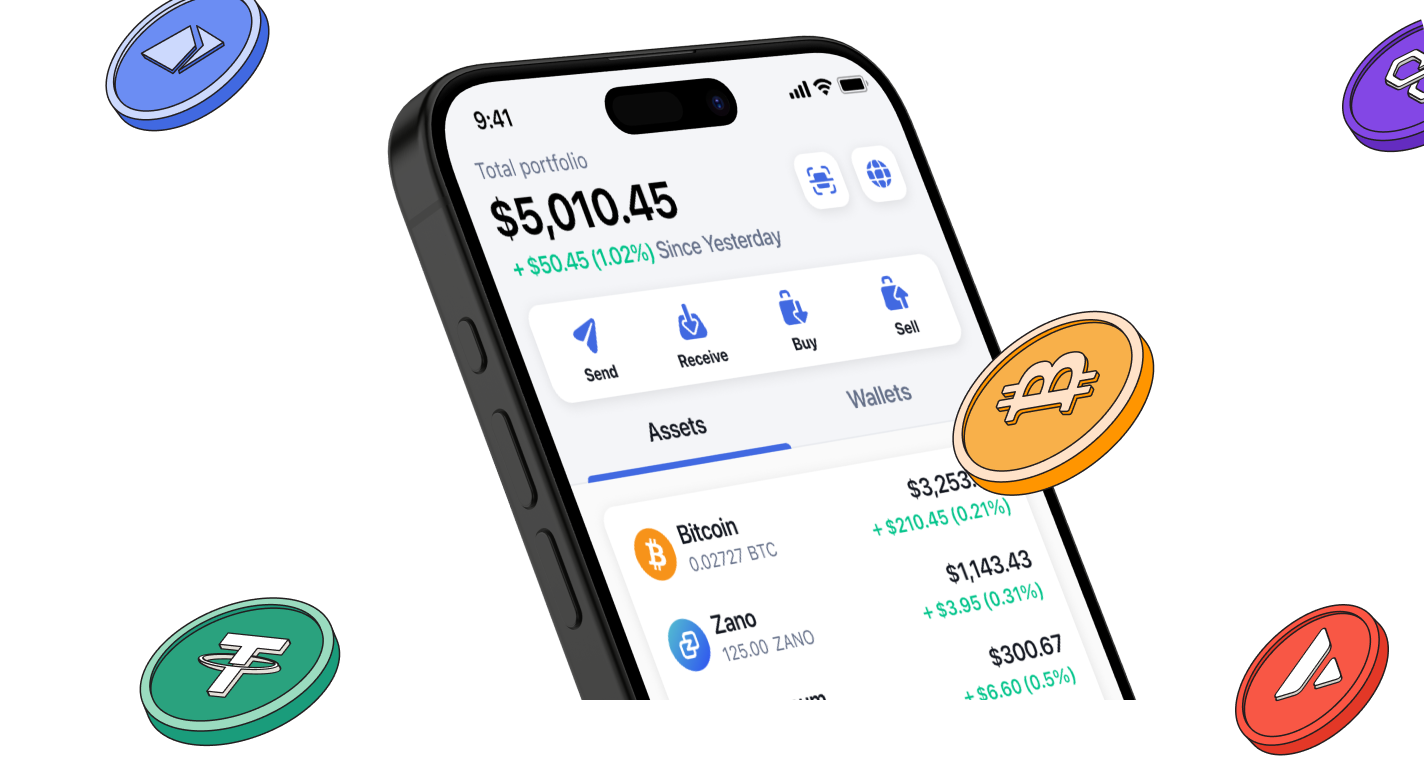Morning Star Pattern: A Signal That Buyers Are Stepping In

Table of Contents
Disclaimer: This article is for educational purposes only and does not constitute financial advice. Always do your own research before making investment decisions.
Overview of the Morning Star Pattern
The Morning Star is a three-candle reversal pattern that forms after a decline in price. It signals that bearish momentum is fading and that buyers may be regaining control.
It typically unfolds over three sessions:
- A long red candle showing strong selling pressure.
- A small-bodied candle indicating indecision.
- A strong green candle confirming the shift in momentum.
When spotted at the bottom of a downtrend or near a key support zone, the Morning Star can be a powerful early signal for a potential price reversal to the upside.
What Does It Look Like?
The Morning Star pattern has three distinct parts:
- Candle 1: Bearish candle - A large red candle closes near its low, continuing the current downtrend.
- Candle 2: Indecision candle - A small-bodied candle (green, red, or doji) shows hesitation in the market. The price movement slows, suggesting that sellers are losing control.
- Candle 3: Bullish candle - A strong green candle closes well into the body of the first candle - ideally above its midpoint. This confirms that buyers have stepped in with force.
The pattern resembles a U-shape and reflects a transition from bearish dominance to bullish momentum. The Morning Star is more reliable when it forms at a major support level or after a sharp price decline.

How Traders Use the Morning Star Pattern
Crypto traders use the Morning Star to anticipate potential trend reversals and set up long trades. Here’s how:
- Entry point - Some traders place a buy order above the high of the third candle. This confirms that buyers are still in control.
- Stop-loss placement - A common stop level is just below the low of the second candle. This protects against false breakouts.
- Confirmation tools - To increase confidence, traders often combine the pattern with volume spikes on the third candle, key support zones, and indicators like RSI or MACD.
When these elements line up, the Morning Star becomes a high-conviction setup in many trading strategies.

Example in Crypto Markets
Imagine Bitcoin has been declining for several days. Then the following forms on the daily chart:
- A large red candle closes near its low.
- A small doji appears the next day, signaling hesitation.
- A strong green candle follows, closing above the midpoint of the red candle.
This is a textbook Morning Star. If price breaks above the green candle’s high the next day - especially with volume - it confirms that bullish momentum may be taking over.
Traders may go long with a stop-loss below the doji’s low and target previous resistance levels for exits.
Limitations of the Pattern
Like all candlestick patterns, the Morning Star isn’t foolproof. It works best when combined with other forms of analysis and has some key limitations:
- It can produce false signals in sideways or choppy markets.
- Without volume confirmation, the pattern may be weak.
- It may not work well in isolation - always consider the broader trend and market context.
Proper risk management is essential. Use stop-losses and position sizing to protect against unexpected moves.
Conclusion
The Morning Star is a classic bullish reversal pattern that gives crypto traders a visual cue that momentum may be shifting. It’s simple to recognize and, when confirmed with volume and support levels, can signal high-probability trade setups.
Because of its clarity and usefulness, the Morning Star remains a go-to signal for spotting bottoms and preparing for trend reversals.
Next Steps
- Learn about the Evening Star, the bearish counterpart of the Morning Star, in our next article.
- Explore related bullish reversal patterns like the Bullish Engulfing and Hammer candlesticks.
- Practice identifying Morning Star patterns on live crypto charts.
- Combine candlestick signals with technical indicators such as RSI, MACD, and moving averages for stronger confirmation.
By incorporating the Morning Star pattern into a well-rounded strategy with confirmation tools and risk controls, traders can improve their ability to react to market reversals with greater confidence.
Explore Related Articles:
- A Beginner’s Guide to Candlestick Charts
- Rising Bullish Hammer Candlestick Pattern Explained
- Shooting Star (Falling Hammer) Candlestick Pattern Explained
- Bullish Engulfing: A Signal That Buyers Are Taking Over
- Bearish Engulfing: A Signal That Sellers Are Taking Control
- Evening Star: A Signal That Sellers Are Stepping In
- Golden Cross: A Signal That Bullish Momentum Is Building
- Bearish (Death) Cross: A Signal That Momentum May Be Turning Against the Market
- Pi Cycle Top: A Signal That Bitcoin May Be Peaking
- What Is the MACD Indicator? A Guide to Moving Average Convergence Divergence in Crypto
- Relative Strength Index (RSI): Spotting Overbought and Oversold Markets
- Stochastic Oscillator: Measuring Momentum and Spotting Reversals
Get started by understanding the basics of cryptocurrency and explore decentralized finance (DeFi). Learn about Bitcoin, Ethereum, and altcoins. Also, discover how to buy and sell crypto.
Disclaimer
No Investment Advice
The information provided in this article is for educational purposes only and does not constitute investment advice, financial advice, trading advice, or any other type of advice. Bitcoin.com does not recommend or endorse the buying, selling, or holding of any cryptocurrency, token, or financial instrument. You should not rely on the content of this article as a basis for any investment decision. Always do your own research and consult a licensed financial advisor before making any investment decisions.
Accuracy of Information
While we strive to ensure the accuracy and reliability of the information presented, Bitcoin.com makes no guarantees regarding the completeness, timeliness, or accuracy of any content. All information is provided “as is” and is subject to change without notice. You understand that you use any information available here at your own risk.
Related guides
Start from here →
What is a DEX?
A decentralized exchange (DEX) is a type of exchange that specializes in peer-to-peer transactions of cryptocurrencies and digital assets. Unlike centralized exchanges (CEXs), DEXs do not require a trusted third party, or intermediary, to facilitate the exchange of cryptoassets.

What is a DEX?
A decentralized exchange (DEX) is a type of exchange that specializes in peer-to-peer transactions of cryptocurrencies and digital assets. Unlike centralized exchanges (CEXs), DEXs do not require a trusted third party, or intermediary, to facilitate the exchange of cryptoassets.

What is a CEX?
Learn about CEXs, the differences between them and DEXs, and whether they’re safe to use.

What is a CEX?
Learn about CEXs, the differences between them and DEXs, and whether they’re safe to use.

How does crypto exchange work?
How safe is it to store your crypto on centralized exchanges?

How does crypto exchange work?
How safe is it to store your crypto on centralized exchanges?

Bitcoin Trading for Beginners
A comprehensive guide to Bitcoin trading for beginners, covering wallets, exchanges, market analysis, and risk management strategies.

Bitcoin Trading for Beginners
A comprehensive guide to Bitcoin trading for beginners, covering wallets, exchanges, market analysis, and risk management strategies.

Reading Bitcoin Charts for Beginners
A beginner's guide to understanding Bitcoin charts, covering candlestick patterns, technical indicators, market analysis, and risk management.

Reading Bitcoin Charts for Beginners
A beginner's guide to understanding Bitcoin charts, covering candlestick patterns, technical indicators, market analysis, and risk management.

Bull vs. Bear Market
Learn about bull and bear markets, their characteristics, and effective strategies for each. Understand Bitcoin's role in these markets and how to navigate market volatility.

Bull vs. Bear Market
Learn about bull and bear markets, their characteristics, and effective strategies for each. Understand Bitcoin's role in these markets and how to navigate market volatility.

Trading Analysis: Fundamental, Technical & Sentimental
Learn about fundamental, technical, and sentimental analysis for smarter trading decisions. Explore examples, tools, and how to combine these methods for a holistic market view.

Trading Analysis: Fundamental, Technical & Sentimental
Learn about fundamental, technical, and sentimental analysis for smarter trading decisions. Explore examples, tools, and how to combine these methods for a holistic market view.
STAY AHEAD IN CRYPTO
Stay ahead in crypto with our weekly newsletter delivering the insights that matter most
Weekly crypto news, curated for you
Actionable insights and educational tips
Updates on products fueling economic freedom
No spam. Unsubscribe anytime.



Start investing safely with the Bitcoin.com Wallet
Over wallets created so far
Everything you need to buy, sell, trade, and invest your Bitcoin and cryptocurrency securely

© 2026 Saint Bitts LLC Bitcoin.com. All rights reserved


